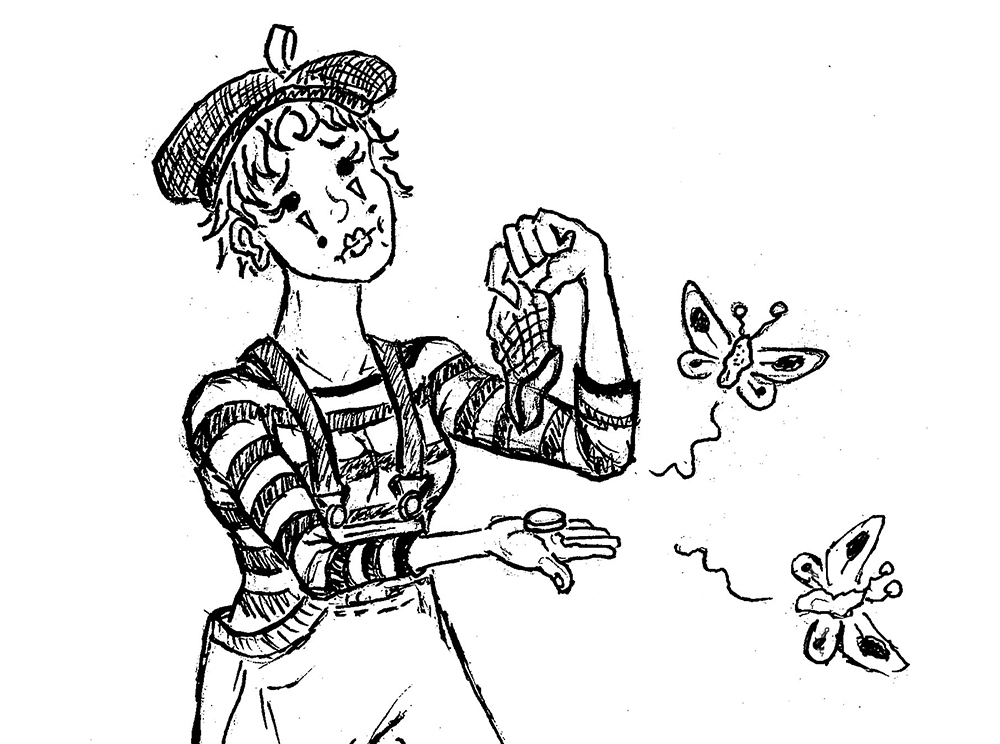Bernice Afriyie | Arts Editor
Featured illustration: Grant funding can be a tedious but rewarding process. | Christopher Lai
University art programs offer students a space to develop their ideas and see their visions come to life. After graduation, however, it becomes difficult for many students to follow their artistic endeavours and support themselves financially.
Despite this, two recent graduates from York’s theatre program, Bessie Cheng and Aaron Jan, have found success in the Toronto theatre scene.
Cheng graduated from York’s devised theatre stream with a focus in playwriting and performing; Jan studied playwriting and directing with some courses from the devised theatre stream as well.
Silk Bath, a play written by Cheng, Jan and Gloria Mok, began as a theatre project in their second year where the three were tasked with turning A Streetcar Named Desire into a physical piece.
“The storyline of the piece was rebuilt through a collective creation process, where the cast would tell stories in rehearsal that we would translate into scenes or character traits. Gloria, Bessie and I were a part of fu-GEN Asian Canadian Theatre Company’s playwriting unit, The Kitchen, so we were easily able to hand a completed draft over to each other for edits without our egos butting heads,” shares Jan.
Even so, Cheng shares that it was a challenge trying to rework a white narrative in an Asian context.
Their efforts were rewarded when Cheng was accepted into the Toronto Fringe Festival last year, making their dream of turning Silk Bath into a full-length play a possibility. As is the case for many young playwrights, funding was crucial in solidifying Silk Bath as a doable project.
“It’s nerve-wracking enough, trying to create theatre that you think people will care about, so the financial aspect of it just adds another layer of stress,” admits Cheng. “Especially for young emerging artists like us, I’ve had to put my own money into projects when I was unable to receive funding externally. This becomes problematic because as students and recent grads, we often don’t have a great amount of money to do this.”
“Money is always a primary concern in putting these projects together, as working for free is a bad habit that we shouldn’t be doing,” adds Jan.
The reality for many recent grads, from across all arts, is that trying to make a living while making art is a source of stress and strain. Theatre, film, television and other related industries rely on unpaid or low-wage positions. This creates a cycle of dependency where many young artists have to take on second jobs to support their internships or subsidize their own projects.
Cheng and Jan both work part-time between projects and rehearsals, which Jan believes is the reality of the theatre business. Besides the obvious financial burden that this places on them, it can also have serious mental consequences from constantly being under stress.
Grant funding from art councils has the potential to alleviate some of this stress, but the process for applying and receiving grants is stressful and not a guaranteed, which can end all sources of financial support. Luckily for Cheng and Jan, Silk Bath received a Toronto Arts Council grant.
“I think it’s great that we have grants like Theatre Creators’ Reserves that are in place to support new works in development, but it is still not always friendly to new artists,” says Cheng.
The grant writing process can be confusing and difficult for artists who haven’t taken grant writing courses. Jan has received funding for the four projects he’s worked on outside of school and attributes this unlikely grant success to the formal grant training education at York. He believes that young people are not getting the proper education they need to succeed with the business aspects of theatre. According to Jan, his peers have either been taught or believe that grants are impossible to get, so don’t bother applying. It’s a complex system where so many talented artists miss out on seeing their visions on stage because they don’t receive grant funding or don’t know it exists.
We need to address the gaps in formal arts education. Grant education and business management should be mandatory parts of a fine arts education so that new artists can enter the real world with the necessary foundations. Although success is never guaranteed, this way students can be aware of all the resources they have available to them. In the same line, there must be a way to regulate unpaid and undocumented labour in the theatre industry. Unpaid labour shouldn’t be brushed off as a necessary part of the business when people young and old cannot receive adequate financial or benefit support for their efforts.


